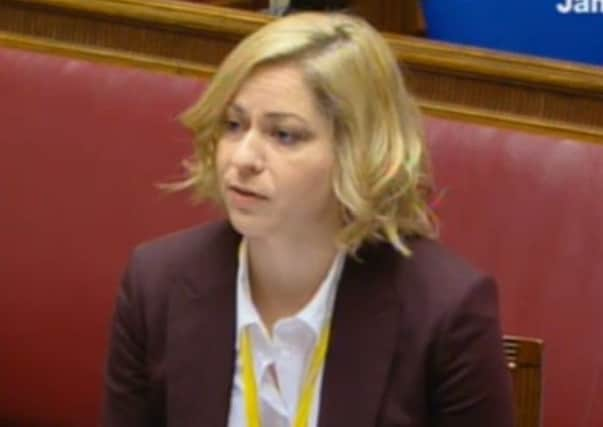RHI inquiry: pressure to open scheme quickly came from '˜high up'


Giving evidence on Tuesday to the public inquiry into the ‘cash for ash’ scandal, the two employees of GB energy regulator Ofgem – which advised the department on how the scheme should be set up and then ran it for Stormont – were clear that the urgency to open the scheme did not originate with the officials with whom they were dealing.
Their evidence is significant because the inquiry has already been told that desperation to get the incentive up and running meant that the department consciously opened it without cost controls.
Advertisement
Hide AdAdvertisement
Hide AdLast year the inquiry was told that five months before the scheme began in 2012 Ofgem warned officials to delay the launch so that cost controls could be included – but they said that the DUP minister was determined to press ahead and open the scheme quickly.
It is not clear whether the cost control warning was ever explicitly put to Mrs Foster, something about which the inquiry has been told there is a “paucity of [documentary] evidence”. Mrs Foster has consistently said that she was never told that cost controls were necessary.
Catherine McArthur, who had been at Ofgem at the time, was asked for her sense of where the pressure was coming from.
She said: “My sense, having worked with [DETI officials] Peter and Joanne, is that there was somebody – a layer removed perhaps from them; I don’t know how many layers removed – who was putting on the time pressure and was making the decisions.
Advertisement
Hide AdAdvertisement
Hide Ad“The discussions that we had with them, which took place over months ... it seemed that they were unable to give guidance or a steer of any kind which to me suggested that they didn’t have a great deal of control necessarily and that it was in somebody else’s hands.”
Keith Avis, a senior programme manager at Ofgem, later agreed with that opinion, saying: “My overall view is that it [the time pressure] was coming from high, high up in the organisation – that it really was something that they were very much committed to and if, throughout this process, you mentioned about timing or any sort of delay it was very much ‘we hear what you’re saying; however we have got a commitment to push forwards’.
“I think there were stages where there was direction right at the top, at ministerial level, where there was a need to move forward quickly.
“But there was also a steer – I don’t know if it was as a result of that – from others at the top of that organisation; I don’t know if it was Fiona [Hepper] or whatever, that was saying that we need to drive forward.”